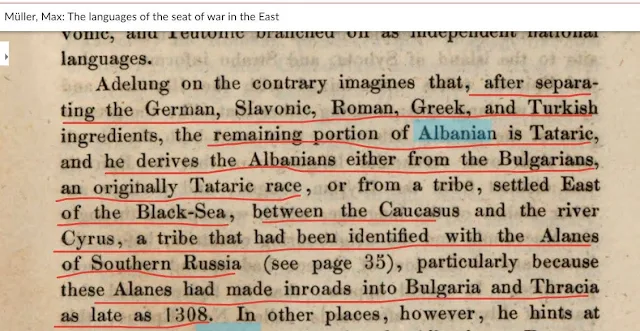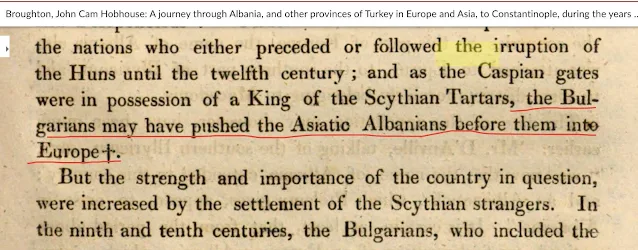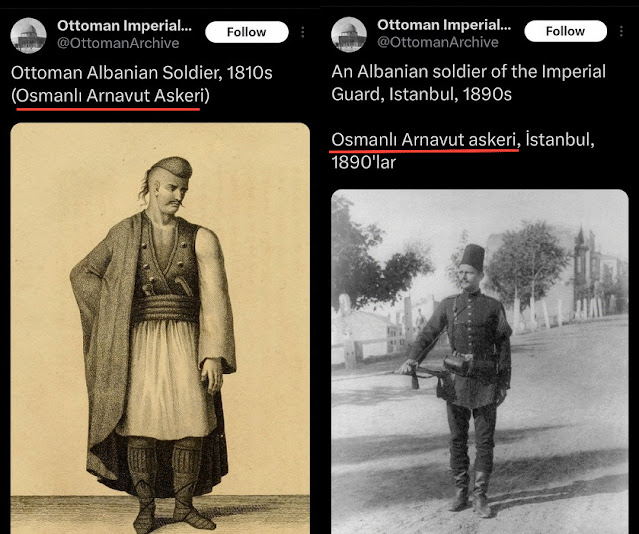Who were the Ancient Albanians
Several years ago, the Albanian state-controlled media started spreading drops of information about the Caspian Sea, as being the primary residence of the ancient Albanians.
A është Kaukazi vendbanimi i parë i shqiptarëve të sotëm -Is the Caucasus the first place of residence of today's Albanians?
According to ancient writers and historians, Ancient Albanians came from the Caspian Sea.
Tommaso Garzoni, an Italian renaissance writer who lived in the fifteenth century, writes that ancient Albania was part of Asia, and it was called Zuiria. Garzoni makes it clear that Zuiria or Albania of the Caspian is different from Albania of Europe, which in fact is called Epirus.
Plinius Caecilius Secundus (Pliny the Younger) says that Albani, were oriental people of Zuiria who were under the emperor of Tatars, Gran Cham. He says that they later spread in the Peloponnese and parts of Macedonia and Epirus, which they commonly call Albania.
The Grand Cham of Tatars
In his memoirs With Stalin, Enver Hoxha strangely is asked by Stalin if Albania has anything to do with Caucasian Albania. Stalin then asks to compare the names of the utensils in Albanian and of the Albanians of the Caucasus.
In his memoirs, Hoxha admits that the Greek minority in Albania speaks their mother tongue, Greek, but lied about their statistics.
Albanians appear in the Armenian manuscripts called Alanes, Aluank, and Arran. They were called “Albanoi” only by Greeks. They lived near Daghestan.
Albanians lived in Daghestan near Derven and Schirvan.
Ptolemy in his famous book, Geographia, shows that Albania or Zuiria was located near the river Albano in Asia and its capital was Cabbala. (fiume = river in Italian).
Ptolemy calls Albanians people of Asia (popoli di Asia), driven out of Asia by Tartars while invading areas of Macedonia…and causing unhappiness in Epirus.
The Italian author Vittore Grandi says: “Here is Western Macedonia invaded by a population of Asiatic Scythians, called Albani, who gave the name to Albania”
Echard Laurence was an English historian and clergyman. He wrote several books on the history of England. He says that Albanians follow the religion of the Greeks but come from ancient Scythians. He calls Albanians, among other things, thieves. He also says that the province of Albania was taken away from the Greeks, from Murat II.
How did Albanians make it to Europe? It is believed that Tataric Albanians may have been pushed by Bulgarians towards Europe sometime at the end of the 13th century, who lives in the Caspian as well.
Tacitus, Roman historian, and politician, claims that Albanian were inhabitants near Iberia and the Caspian Sea. He also writes that Albanians were recruited, in the times of Pompey, to make them brothers of Romans.
Albanians were pagans who worshiped the Sun and the Moon and they were conquered by Pompey, John Cam Hobhouse writes. They were unskillful in the art of war and in agriculture.
Friedrich August Marschall von Bieberstein, an explorer of the flora and archaeology of the southern portion of Imperial Russia, describes the war of Pompey with Albanians in the Caspian Sea.
He says that Pompey defeated the Albanian troupes completely near the Kour- Kura river the name of the ancient Cyrus river that got it's name from Cyrus the Great.
François Charles Hugues Laurent Pouqueville was a French diplomat, writer, explorer, physician and historian, and member of the Institut de France. He traveled extensively throughout Ottoman-occupied Greece from 1798 to 1820.
In 1814 F. Pouqueville was appointed consul in Patras.
Pouqueville writes: “Name Schypetars are new in the geography of Europe...been seen for the first time...how come these people found their way towards Europe...strangers in an ancient land…”
Pouqueville call Albanians Schetechips or Albanians and says that they lived in the vicinity of the Caspian...
Pouqueville: “To affirm that Schypetars are native to Greece seems to me a hazardous assertion”. He also seems to know that Alanes are mentioned by the Armenian Geographers.
Pouqueville also mentions Lezgidans or Lezgins ( Alanes are thought to be a Lezgin race) in Azerbaijan, which was previously called Caucasian Albania.
Lezgins looked like this
























